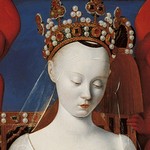- Details
Song of the week: Des Fischers Liebesglück (F. Schubert) - H. Hotter, H. Altmann
 When a song has been stuck on my mind for weeks, it's time to share it with you; It's proven that talking about it is a way of getting rid of it (just to make room for a new earworm anyway). In addition, this song isn't really well-known, and maybe some of you will hear it today for the first time. Do you remember that some time ago I talked about Geheimes and its daring elegance? Well, Des Fischers Liebesglück (The fisherman’s luck in love) is somehow similar; a refined, elegant Lied and, at the same time, subtly risky.
When a song has been stuck on my mind for weeks, it's time to share it with you; It's proven that talking about it is a way of getting rid of it (just to make room for a new earworm anyway). In addition, this song isn't really well-known, and maybe some of you will hear it today for the first time. Do you remember that some time ago I talked about Geheimes and its daring elegance? Well, Des Fischers Liebesglück (The fisherman’s luck in love) is somehow similar; a refined, elegant Lied and, at the same time, subtly risky.- Details
Song of the week: Zum neuen Jahr (H. Wolf) - O. Bär, G. Parsons
 The year 2018 has just arrived so the first and most important thing is to wish you a wonderful year. The Lied seasons are putting together very interesting (a priori) song recitals, let's see what we say a posteriori! For instance, next Tuesday, the first song recital this year in Barcelona (as far as I know), is given by an experienced singer, Anne Sofie von Otter, with Christian Bezuidenhout at the fortepiano. And, as wrote down in my notebook, this year we celebrate the 100th anniversary of the birth of my beloved Leonard Bernstein.
The year 2018 has just arrived so the first and most important thing is to wish you a wonderful year. The Lied seasons are putting together very interesting (a priori) song recitals, let's see what we say a posteriori! For instance, next Tuesday, the first song recital this year in Barcelona (as far as I know), is given by an experienced singer, Anne Sofie von Otter, with Christian Bezuidenhout at the fortepiano. And, as wrote down in my notebook, this year we celebrate the 100th anniversary of the birth of my beloved Leonard Bernstein.But, as you know, our Christmas Season is not over on Liederabend yet, given that the Three Holy Kings are on their way to our homes, therefore, this is the third and last Christmas post of this season. We're listening to [...]
- Details
Cançó de la setmana: Image de Nöel (F. Martin) - C. Stotijn, J. Breinl, T. Fret
 This week I'm (more or less) on holiday, so I'm posting a very brief Christmas post, the second one this season. Just a few words to talk you about a little, tender, song: one of the Trois chants de Noël by the Swiss composer Frank Martin, his first song here on Liederabend.
This week I'm (more or less) on holiday, so I'm posting a very brief Christmas post, the second one this season. Just a few words to talk you about a little, tender, song: one of the Trois chants de Noël by the Swiss composer Frank Martin, his first song here on Liederabend.- Details
Song of the week: Priez pour paix (F. Poulenc) - J. Brancy, P. Dugan
 A few people have recently told to me that despite Christmas is upon us, they weren't fully aware of it: neither home decorating nor gifts, nor meals thought... We're living hard times, to say the least, and the spirit of Christmas is downhearted. That is why I thought of one of those balm-songs for the first of the three posts of this season, a wonderful song by Francis Poulenc, Priez pour paix.
A few people have recently told to me that despite Christmas is upon us, they weren't fully aware of it: neither home decorating nor gifts, nor meals thought... We're living hard times, to say the least, and the spirit of Christmas is downhearted. That is why I thought of one of those balm-songs for the first of the three posts of this season, a wonderful song by Francis Poulenc, Priez pour paix.The text was published at Le Figaro on 29 September 1938, when Europe was fearing a new war, only twenty years after the end of that terrible conflict that had bled the continent. Poulenc immediately wrote his mélodie: "I have tried in this mélodie to give an impression of fervour and above all, of humility, which for me its the [...]
- Details
Song of the week: Die Stadt (F. Schubert) - H. Schlusnus, S. Peschko
 Two weeks ago, I told you that Die Stadt could give us a clue about the music we missed due to Schubert’s early death. Back then, I told you it was a strange and fascinating song, just that. Not even the poet, Heine, or the performers, Thomas Quasthoff and Justus Zeyen. That article was already long enough to add even one or two more paragraphs and I thought I'd rather tell you more about the song in another post.
Two weeks ago, I told you that Die Stadt could give us a clue about the music we missed due to Schubert’s early death. Back then, I told you it was a strange and fascinating song, just that. Not even the poet, Heine, or the performers, Thomas Quasthoff and Justus Zeyen. That article was already long enough to add even one or two more paragraphs and I thought I'd rather tell you more about the song in another post.When people talk about what Franz Grillparzer called Schubert's "fairer hopes", that music he couldn’t write, we usually refer to the modernity of some of the works he wrote during his last year, such as the three piano sonatas or Heine's songs. We could add some other ones written before which anticipate some decades other [...].













